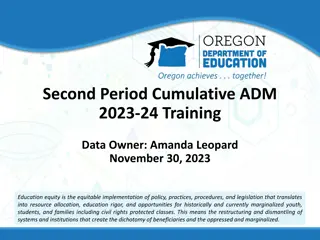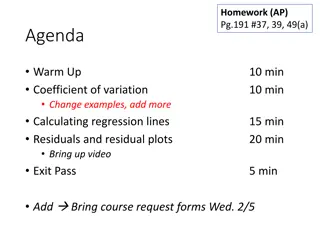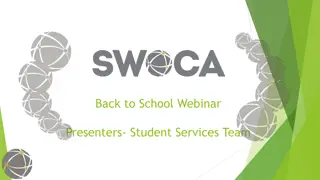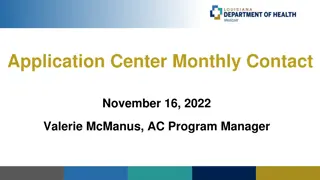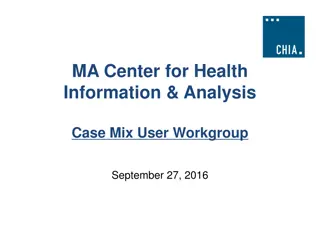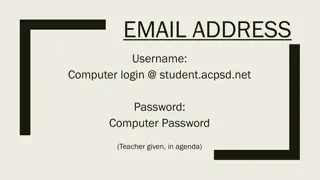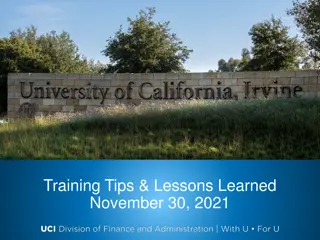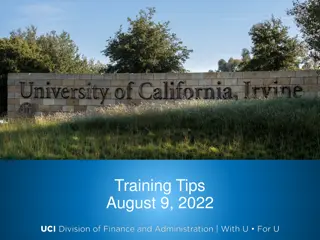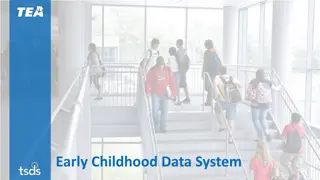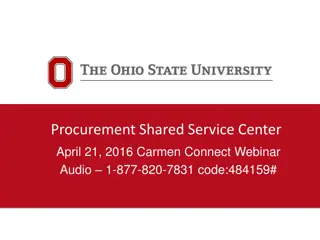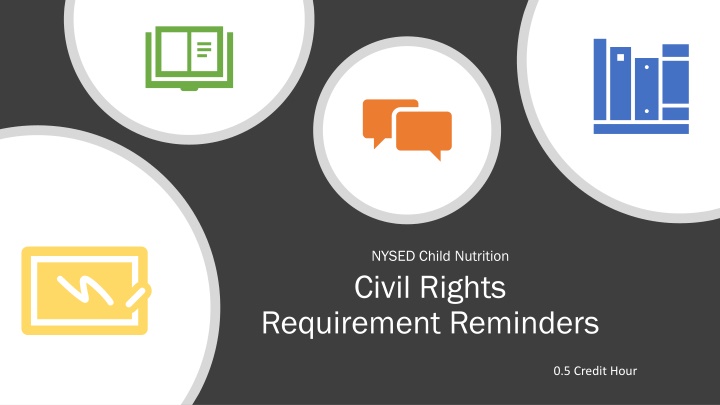
Child Nutrition Civil Rights Compliance Requirements Overview
Learn about the annual training requirements, data collection, USDA poster display, NDS accuracy review, and common errors related to civil rights compliance in child nutrition programs. Ensure staff and volunteers receive proper training, report racial and ethnic data accurately, display USDA posters, review NDS for accuracy, and avoid common errors to comply with federal regulations.
Download Presentation

Please find below an Image/Link to download the presentation.
The content on the website is provided AS IS for your information and personal use only. It may not be sold, licensed, or shared on other websites without obtaining consent from the author. If you encounter any issues during the download, it is possible that the publisher has removed the file from their server.
You are allowed to download the files provided on this website for personal or commercial use, subject to the condition that they are used lawfully. All files are the property of their respective owners.
The content on the website is provided AS IS for your information and personal use only. It may not be sold, licensed, or shared on other websites without obtaining consent from the author.
E N D
Presentation Transcript
NYSED Child Nutrition Civil Rights Requirement Reminders 0.5 Credit Hour
Annual Requirements: Train staff annually Local agencies are responsible for training their subrecipients, including frontline staff who interact with applicants or participants on an annual basis. New employees before participating in Program activities Volunteers must receive training
Collect and report racial and ethnic data through Basic Educational Data System (BEDS) report or the Civil Rights Compliance Report.
USDA USDA AND JUSTICE FOR ALL AND JUSTICE FOR ALL Poster Poster Display the poster in a prominent location for all to view Required in classrooms only if students do not visit the cafeteria.
Review your NDS for Accuracy In accordance with Federal civil rights law and U.S. Department of Agriculture (USDA) civil rights regulations and policies, the USDA, its Agencies, offices, and employees, and institutions participating in or administering USDA programs are prohibited from discriminating based on race, color, national origin, sex, disability, age, or reprisal or retaliation for prior civil rights activity in any program or activity conducted or funded by USDA. Persons with disabilities who require alternative means of communication for program information (e.g. Braille, large print, audiotape, American Sign Language, etc.), should contact the Agency (State or local) where they applied for benefits. Individuals who are deaf, hard of hearing or have speech disabilities may contact USDA through the Federal Relay Service at (800) 877- 8339. Additionally, program information may be made available in languages other than English. To file a program complaint of discrimination, complete the USDA Program Discrimination Complaint Form, (AD-3027) found online at: http://www.ascr.usda.gov/complaint_filing_cust.html, and at any USDA office, or write a letter addressed to USDA and provide in the letter all of the information requested in the form. To request a copy of the complaint form, call (866) 632-9992. Submit your completed form or letter to USDA by: (1) mail: U.S. Department of Agriculture Office of the Assistant Secretary for Civil Rights 1400 Independence Avenue, SW Washington, D.C. 20250- 9410; (2) fax: (202) 690-7442; or (3) email: program.intake@usda.gov. This institution is an equal opportunity provider
Common Error SFAs must ensure all materials have the most up to date non discrimination statement Websites Flyers Program materials CN related forms Translations: Other languages are available on the FNS Civil Rights web page: https://www.fns.usda.gov/fns- nondiscrimination-statement
Evaluate Your Language Access Plan Review Your Plan: What language assistance services do you have? How can you provide meaningful access to LEP individuals? Have you identified ways in which language assistance will be provided ? Is your staff trained? Are you monitoring and updating your plan? An Effective Language Access Plan will: Ensure access to online automation services and telephone voice mail menus Provide a method for identifying persons who need language assistance at the point of service Record and track the language spoken by LEP persons and the language assistance provided at the point of service to each LEP person Train staff on how to meet their LEP access obligations, including how to use telephone and in-person interpreter services Involve community in implementing the Recipient s LEP Plan Monitor the LEP persons access to services and the Recipient s language assistance measures
See additional guidance by The Department of Justice: Language Access Plan https://www.lep.gov/resources/2011_Language_ Access_Assessment_and_Planning_Tool.pdf
Review your Complaint Policy Ensure all complaints of discrimination are forwarded to the USDA Train staff on your complaint process Review FNS 113-1 See USDA s complaint form
Refer to SP-59-2016, Policy Memorandum on Modifications to Accommodate Disabilities in the School Meal Programs Meal Modification Guidance Review your policy and procedures
The expanded definition of DISABILTY: Major Life Activities: Seeing, hearing, walking, speaking, learning, eating, breathing Major Bodily Functions: Digestive Immune system, respiratory, circulatory, neurological/brain
Statement : Provides information about impairment-DIAGNOSIS NOT REQUIRED States how diet is restricted States how to accommodate condition You may seek clarification: Do not delay modification Do not request medical records Do not require note signed by physician, it may be signed by any State licensed healthcare professional Medical statement requirements
*Includes 3 essential components: The food to be avoided (allergen) Brief explanation of how exposure affects the student Recommended substitute(s) Food Allergy medical statement
Agreements/ Contracts with a FSMC must contain a written assurance that the program or facility will operate in compliance with Civil Rights laws and regulations Assurance Statements FNS 113-1 SFAs are responsible for ensuring that their FSMC are in compliance with CR requirements *This language is already included in the NYSED FSMC prototype
QUESTIONS? EMAIL : CNTRAINING@NYSED.GOV



